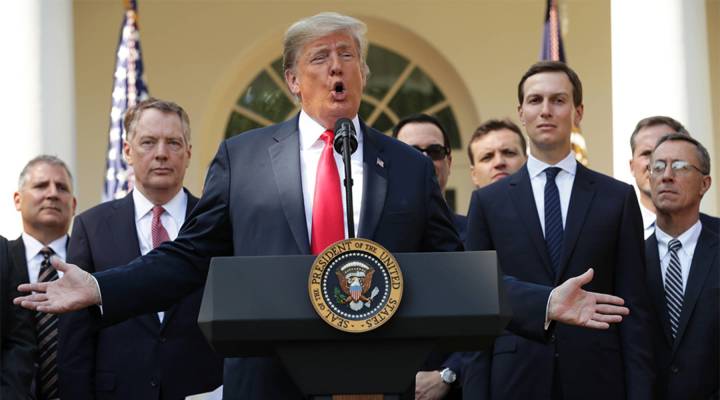
USMCA faces an uncertain path through Congress

The Trump administration’s top trade priorities for 2019 include addressing trade imbalances with China and getting congressional approval for the revised NAFTA, according to a report released by the administration on Friday.
Passing trade legislation is often difficult, but the U.S.-Mexico-Canada Agreement, as the updated NAFTA is now known, faces an especially uncertain path.
“The dynamic has typically been, presidents [from either party] negotiate agreements, Republicans overwhelmingly support it, and enough Democrats get dragged along to make it possible,” said Senator Pat Toomey (R-Pa.), a member of the Senate Finance Committee, which has jurisdiction over trade agreements.
“Now we’re in a dynamic where it’s very different,” he said. “We have a president who’s much less pro-trade than the Republican consensus has been historically, and Democrats do not appear as enthusiastic about working with this president as they might have been with others.”
While Toomey is a strong advocate of free trade, he opposes the USMCA in its current form, disagreeing with provisions that require it to be renewed periodically, establish minimum wage requirements for automotive workers and pare back, or phase out, arbitration panels to review investor disputes, among others.
“Now theoretically, the implementing legislation could improve upon a number of these provisions, but I don’t think the administration has any intention of improving [them],” Toomey said. “They see these items as features, not flaws.”
Democrats have their own issues with the deal — in particular, they are concerned that protections for workers and the environment be enforceable. “It has good features to it, but they don’t matter at all if you don’t have enforcement – enforcement in terms of the labor provisions, enforcement in terms of the environment provisions,” House Speaker Nancy Pelosi said in December.
Other Democrats worry that elaborate intellectual property protections for a certain class of drugs will lead to higher prices. Newly in charge of the House of Representatives, Democrats have increased power to thwart or hold up the deal.
“Nancy Pelosi famously, with the U.S. Colombia free trade agreement, sat on that agreement for four years while she was speaker,” said Christopher Sands, director of the Center for Canadian Studies at Johns Hopkins University. “She was holding it to some extent hostage so she could get leverage to get other concessions out of the administration.”
In 2008, Pelosi argued that Congress should prioritize addressing the worsening U.S. economy.
While the timeline for a vote on the USMCA isn’t yet clear, the longer Congress waits, the more the deal will become an election issue. “Most members of Congress are looking at how it’s going to affect their constituents and how it will affect their re-election coming up in 2020,” Sands said. “I think the gamble here is going to be, ‘What’s my vote worth and if I approve this agreement now, will my constituents be happier?’”
Such calculations are how the fate of trade agreements can often come to rest on a few divisive issues, even if they are relatively small parts of the deal. Intellectual property protections for drugs were also a source of conflict in Trans-Pacific Partnership, for example, which never received a vote in Congress despite a big push from the Obama administration.
By then, Washington was already hyperpartisan, but it’s even more so now, says Mac Destler, who specializes in the politics of trade at the University of Maryland.
“The problem, I think, for Democrats, is a lot of them are both skeptically inclined and don’t want to give Trump a victory,” Destler said. “And Republicans are quite shaky in terms of Trump’s approach to trade, more generally.”
There’s a lot happening in the world. Through it all, Marketplace is here for you.
You rely on Marketplace to break down the world’s events and tell you how it affects you in a fact-based, approachable way. We rely on your financial support to keep making that possible.
Your donation today powers the independent journalism that you rely on. For just $5/month, you can help sustain Marketplace so we can keep reporting on the things that matter to you.


















